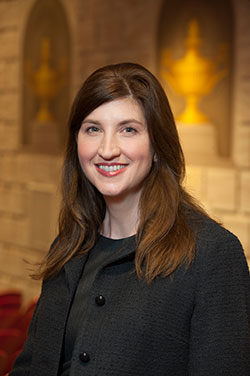
Attempting to write about the future of education in our field is a pretty daunting task, but one I am happy to tackle because of my enthusiasm for the topic. I’ve had the good fortune of working on a number of educational initiatives at the university and national level, and I enjoy a broad network of practitioners from whom I always learn a lot. These experiences inform my litany of thoughts here, but I’m not always conventional in my thinking. That said, I have challenged my students based on these ideas with great success and am pleased to share them here.
As I ponder the future of public relations education, three thoughts come to mind: fast forward thinking, interdisciplinary learning, and analytical prowess.
What I mean by fast forward thinking is preparing students not so much for their first job, but rather their third or fourth position. Internships and skills courses give them the foundation they need to build a technical career, but I think we do a disservice to both students and our profession if we stop there. If we want to see more executives with public relations backgrounds (goodness knows we need them), we must ensure public relations students are sufficiently prepared to get on that leadership path. That path is one of interdisciplinary learning that includes business, economics, political science, sociology, and organizational behavior, among other fields.
Interdisciplinary thinkers make better decision-makers because they can draw on more than just a hammer to address a problem. Haven’t we seen enough cases where “just throw money at it” or “can’t you just make this go away?” resulted in an abysmal failure that could have been avoided?
So, then, comes the question of just how to expand students’ intellectual toolkits. Survey and anecdotal evidence indicates this idea of interdisciplinary thinking resonates well with those who hire our students, but executives grow frustrated hearing that curricular shifts in the academy are anything but fast. Working groups at the 2015 Commission for Public Relations Education CCO Summit (see report here) offered a variety of ways students could broaden their educational experiences outside of the classroom. This is a starting point.
Leadership and ethics are important throughout one’s career, but as one rises in organizational stature, these areas increase in complexity in ways that are difficult for an undergraduate to imagine. Nevertheless, fast forward thinking means presenting students with concepts and scenarios that they may not face for years down the road. Students have repeatedly reported how this method of “thinking ahead” has helped them in the early stages of their career and demonstrates to their bosses an impressive way of thinking beyond their years.
Analytical prowess is the third component of my thinking about the future of public relations education. Data gathering and analysis are certainly part of this skill, and I’m a robust proponent of getting students comfortable with the quantitative side of communication many majors attempt to avoid. There’s nothing like getting students over the initial resistance of “I don’t” or, worse, “I can’t do numbers” and watching them blossom as they let down their guard and see the powerful insights data analytics can provide.
An analytical mindset goes beyond crunching numbers, however. It involves teaching students to synthesize, filter, and present information in a way that is relevant, accurate, and succinct – and recognizing that information comes from a myriad of sources they encounter on a daily basis. A good place to start is requiring students to draw information from different courses, opinion leaders, and news sources to complete an assignment.
As educators, we need to keep learning – and networking – to prepare our students to lead. Let’s teach them what we know and partner with others to provide the content and experiences they need to fill in the rest. And won’t we be glad we did?
For more information on the future of PR Education, please see the full report “Commission on Public Relations Education: Industry-Educator Summit on Public Relations.”
 Sandy Duhé, Ph.D., is Chair of Corporate Communication and Public Affairs, Associate Professor, Director of Public Relations at Southern Methodist University. She is a member of the PRSA College of Fellows and the Arthur W. Page Society. Follow her on Twitter, @sandraduhe
Sandy Duhé, Ph.D., is Chair of Corporate Communication and Public Affairs, Associate Professor, Director of Public Relations at Southern Methodist University. She is a member of the PRSA College of Fellows and the Arthur W. Page Society. Follow her on Twitter, @sandraduhe



